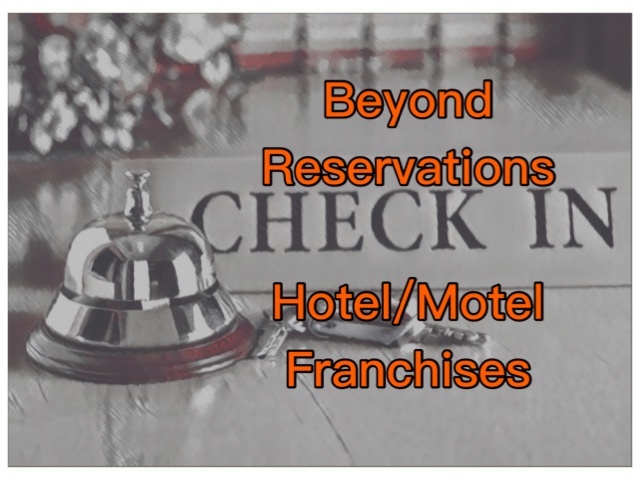New Standards Must be Established for Hotel Ethics
Hotel Ethics and Training must focus more on the safety of guests than just reservation and brand consistency. Franchisors must demand more training of managers and engineers.
By Rebecca Martin
There are topics we would like to explore in depth regarding the hospitality industry. The hospitality industry has been defined as “a vast sector that includes all the economic activities that directly or indirectly contribute to, or depend upon, travel and tourism.”[1] As an economic sector, the hospitality industry has Hotel ethics which envelope all facets of its business persona. These standards were designed to “generate positive and gainful outcomes”. [2]
“Hotel Ethics goes beyond describing what is done, in order
to prescribe what “should” be done; Hospitality Ethics prescribes what should be done in matters related to hospitality.” https://en-academic.com/dic.nsf/enwiki/4802819
Facets of Hotel Ethics – A Clean Room Is Not Enough

Hotel ethics should demand that hotel managers and engineers have significant training in hotel mechanical systems. Virtually all carbon monoxide poisonings are attributable to neglect in process of maintaining boilers and pool heaters.
There are many facets to hotel ethics. Most are related to employee relations, standards of care and service for guests and development and maintenance of the environment itself. However, there is an emerging idea in the hospitality industry that due to globalization and therefore a more globally based economic competitive arena, that mistakes in the hospitality industry may threaten the survival of the individual components of the lodging industry. This is partially due to the eruption of media coverage which takes lodging incidents into the mainstream, ultimately negatively impacting not only those directly involved, but also the global industry itself.
“Precisely why, Porter (2003) stated in the European Business Forum that Ethics is becoming an important field of Business. Companies that have balked at allegations have faced major embarrassments & losses, whereas companies that have fearlessly owned responsibility in a forthright manner have benefitted immensely in the long run,Devaki Kutty (2008)” https://www.researchgate.net/publication/307872348_Ethical_Beliefs_and_Practices_in_Hotel_Industry_for_Value_Creation
Standards Must be Focused on Safety
While an international standard for hotel ethics has not yet been established, there do seem to be repercussions for those who choose not to adhere to industrial ethics. And many of those repercussions begin in the initial media coverage, a recent example being the deaths of three tourists at the Sandals Bahama Resort. See also this weeks story quoting the Brain Injury Law Group’s Attorney Gordon Johnson in the New York Times on CO alarms in every hotel room.
But let’s step back a moment into some of the ethical responsibilities involved in the running of a lodging facility.
“Ethics in business provides guidelines and instructions for acceptable conduct so that businesses know the difference between right and wrong in order to develop and strategise their daily operations by choosing to do the right thing.” https://questionanswer.io/what-are-the-basic-ethical-principles-of-hospitality-manager/
Hotel Ethics Must Demand Training in Mechanical Systems
One of the tenets of the hospitality industry is the proper vetting and training of staff. It is expected that all staff not only be educated about their job positions but also qualified for the position they hold. And this includes trustworthiness and accountability. These are considered basic responsibilities for the hotel management so as to ensure the proper and profitable operations of their establishment. Whether that employee is acting as front of house to conducting maintenance, it is the responsibility of the hotel manager to thoroughly vet and supervise all employees. These employees have an immediate impact on the satisfaction of the guests. And in some cases, as we have seen, this responsibility has had a negative impact on the lives of guests as well. Take, for example, the hotel tragedies which have occurred due to negligent, unqualified maintenance personnel placed in control of the engines of the establishment; hot water heaters, boilers, and pool heaters
But what about the hotel managers themselves? While larger lodging facilities may require a degree in hotel management, many smaller facilities do not. They may require a high school diploma and some industry experience. Ideally a bachelor’s degree in hotel management does cover issues of maintenance but familiarity with a particular establishment’s workings is an entirely different topic.
Which is Worse, Small Operators or Big Chains?
We tend to believe that the larger the franchise the more attention they might pay to the operations of their various franchisees but in practice, we have not found that to be true. There are basically three ways to become the owner of a lodging establishment. First, one can enter into a lease agreement with an established hotel operator where the owner gets rent for the use of the property and services. In this case the owner anticipates few risks and the tenant has control over the operation of the facility.
A second way one can purchase a lodging establishment outright and run the operation independently. In this instance, the owner accepts all the risks while whoever and either manages the hotel himself or hires a manager to deal with the actual daily functioning of the facility.
Then there is an option affiliate with a franchise hotel chain.
“A franchise has the power to use the brand, distribution means, and other proprietary know-how of a franchisee. The owner holds all risk and liabilities of the business, but, unlike an HMA, maintain management of the property.” https://www.ihcshotelconsulting.com/blog/things-know-before-buying-hotel-franchise/
One of the cons pointed out in this scenario is that the owner then accepts greater risks, while the franchise itself experiences a low operating risk. Often franchises offer benefits that are connected solely with the brand itself. Obviously this includes the use of their name and access to their business team. Franchisees also offer strong booking, reservations and customer-loyalty programs. According to an interview with Scott Joslove, president and CEO of the Texas Home and Lodging Association
“Franchisees who do well have a good elevator pitch on each of these items: ‘If you come with us, we’re going to make you more money, it’s going to cost you less to come over, our standards are reasonable, we’re going to take care of you – when we have a relationship, we take care of our own. And you’re going to find our booking system can’t be beat, and with our customer-loyalty program, people will be coming back.’ Those brands that are successful have a winning argument on each of those issues.” https://www.todayshotelier.com/2016/12/01/proof-positive-hotel-franchising/
In the same article, Julienne Smith, a senior Vice President for real estate and development at Hyatt Hotels Corp says aside from choosing an appropriate location that “…potential Hyatt franchisees can’t be first-time hotel operators. They have to have successful hotels in their portfolio, with strong guest-satisfaction scores and a high level of employee retention. Potential franchisees whose hotels are a tier below the high-end Hyatt hotels may be considered, but only if their performance in that tier is stellar and they have the corporate infrastructure in place to handle additional hotels…”
Many of these concerns over vetting potential franchisees focus on former performance, absence of litigation, and overall profitability. In return they offer brand growth, market research and other resources to make the facility profitable and to promote their own brand. With five major franchises owning 30% of the world’s lodging facilities, and this number expected to increase, the operations of franchises deserve a bit of scrutiny.
Franchisors Want to Control Everything but Safety
Purchasing a hotel franchise is generally followed by a visit to the franchise headquarters in order to become familiar with the brand’s system operations. An operations manual is provided and further support is done through mobile or internet media.
In the United States, the Federal Trade Commission oversees franchises. According to its rules “a commercial business arrangement is a “franchise” if it satisfies three definitional elements. Specifically, the franchisee must: (1) promise to provide a trademark or other commercial symbol; (2) promise to exercise significant control or provide significant assistance in the operation of the business; and (3) require a minimum payment of at least $500 during the first six months of operations.” https://www.ftc.gov/system/files/documents/plain-language/bus70-franchise-rule-compliance-guide.pdf
The rules state that the franchise “will exert or has the authority to exert a significant degree of control over the franchisee’s method of operation, or provide significant assistance in the franchisee’s method of operation.”
They list what constitutes significant control. Site approval and design, hours of operation, accounting practices, personnel policies, and promotional campaigns requiring a monetary contribution, to list those specifically related to lodging. Assistance can also include requiring the franchisee to make repairs when needed unless an item is under warranty. These potential controls do not include health and safety restrictions required by Federal or State Law. There are certain exemptions such as the Large Franchise Investment Exemption in which a franchisee has invested over a million dollars outside of franchise costs.
The franchise must provide a description of the training that will be required per FTC rules. This would include a description of the subject matter, the hours of training, hours of on-the-job training and the location. An amendment to the rules also requires identifying who is doing the training and their qualifications. In addition, another amendment states that if “on-premise” training is not required, a franchise must disclose any restrictions on any supervisor/manager the franchisee may have hired and what type of training they might have received.
No Training in Causes and Prevention of Carbon Monoxide Poisoning
Any training in operating the physical and HVAC equipment in the hotel is superficial. None of it focuses on any carbon monoxide issues. Franchisees are expected to comply with their federal and state laws. They are expected to maintain certain equipment at their own expense except for those under warranty. They are not required to be familiar with any manuals regarding such equipment except for that manual which explains the role and duties to the franchise. In effect, the franchise itself sees this opportunity as low risk and maximum payment in the expansion of the brand and franchisee payments. They are not required to physically do inspections aside from location and appearance. In return for offering a name and business model, the owner(s) receives support for increasing the profitability of their investment.
Going back to the state of today’s media and the possibility that every incident at a franchisee-owned property can instantly become headline news and shed a negative light on the entire industry, we must ask the question “why aren’t franchises more involved with carbon monoxide safety?” It seems the FTC has let them off the hook pending any future federal legislation.
What does come to mind when piecing together the research, is that a lot of the focus of training is with certain aspects of the hospitality business: How to hire, how to maintain appearances, how to strengthen one’s market position, how to maintain guest satisfaction. What we would like to see is a greater concern that guests are not sickened or found unconscious or dead in their hotel rooms. That children enjoying a day at the pool do not end up in the emergency room. And that travelers make their way home safely.
[1] https://www.ehl.edu/en/what-is-hospitality
[2] https://ivypanda.com/essays/ethics-in-tourism-and-hospitality/

Leave a Reply
Want to join the discussion?Feel free to contribute!